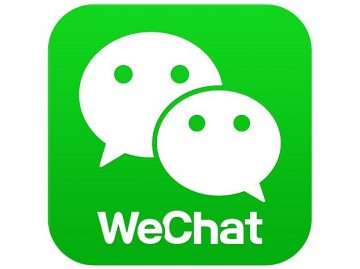
WeChat is prevalent across China. First released in 2011, WeChat boasts over 1 billion monthly active users. This mobile app is so widely used that it has become indispensable to the Chinese community. Its convenience and wide availability has attracted more and more people, including myself. I was always skeptical about the idea that money should be transferred via SmartPhone apps, because people might not understand the value of money and easily squander it. However, after I encountered WeChat pay, I could not help but rely on it because there are so many apps and functions that can facilitate people’s everyday lives. All the payments can be done through WeChat pay, all types of food can be ordered from food delivery services such as 美团外卖, and even movie tickets can be booked using WeChat. Some people say they love the thrilling experience of opening red packets. WeChat Pay has already superseded cash and credit cards; more and more people don’t carry any cash when they go out.
However, there is an untold story that is veiled by the success of the app. As WeChat, owned by Chinese parent company Tencent, rapidly grows into an international behemoth, one person’s post can be shared among hundreds of thousands of people worldwide. The problem arises when people’s posts are disclosed to the government and are removed due to their politically sensitive words or pictures. For example, when people have shared their political opinions in group chats, the chat groups and participants’ accounts were removed without their knowledge or consent. For more information on government interference into WeChat posts, visit this article.
These stories have convinced some people that their privacy is at risk. The possibility of infringement of privacy prompted them to doubt the safety of WeChat and reconsider using it. Their suspicions about WeChat culminated in 2017 when Tencent notified users that people’s personal information, messages, and private log data are stored and preserved by WeChat. The personal data includes phone numbers, email addresses, regularly visited places, and even users’ specific locations. Such data helps companies to advertise products better because they know the preferences of their consumers. Although TenCent promises its users that their private information won’t be revealed, the government has direct access to it; that is, when politically-sensitive posts are exposed to the government, the posts will either be permanently removed, or the users will be banned from using WeChat.
Currently, tech-savvy millennials are avoiding WeChat because they do not want to sacrifice their privacy and freedom of speech in exchange for convenience. When I first started to use WeChat, I never thought the text messages I sent and the moments I posted would be shared and stored without my knowledge or any notification.